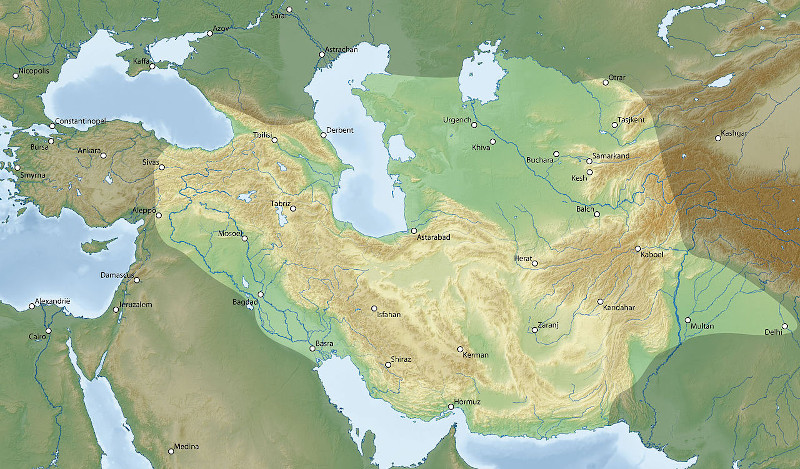Timurid Empire (Nation) AKA Gurkani, تیموریان

Timurid Empire
1370 AD - 1402 AD
AKA Gurkani, تیموریان
A late medieval, culturally Persianate, Turco-Mongol empire that dominated Greater Iran in the early 15th century, comprising modern-day Iran, Iraq, Afghanistan, much of Central Asia, the South Caucasus, as well as most of contemporary Pakistan and parts of contemporary North India and Turkey.
The empire was founded by Timur (also known as Tamerlane), a warlord of Turco-Mongol lineage, who established the empire between 1370 and his death in 1405. He envisioned himself as the great restorer of the Mongol Empire of Genghis Khan, regarded himself as Genghis's heir, and associated closely with the Borjigin. Timur continued vigorous trade relations with Ming China and the Golden Horde, with Chinese diplomats like Ma Huan and Chen Cheng regularly traveling west to Samarkand to buy and sell goods. The empire led to the Timurid Renaissance, particularly during the reign of astronomer and mathematician Ulugh Begh.
By 1467, the ruling Timurid dynasty, or Timurids, had lost most of Persia to the Aq Qoyunlu confederation. However, members of the Timurid dynasty continued to rule smaller states, sometimes known as Timurid emirates, in Central Asia and parts of India. In the 16th century, Babur, a Timurid prince from Ferghana (modern Uzbekistan), invaded Kabulistan (modern Afghanistan) and established a small kingdom there. Twenty years later, he used this kingdom as a staging ground to invade India and establish the Mughal Empire.









